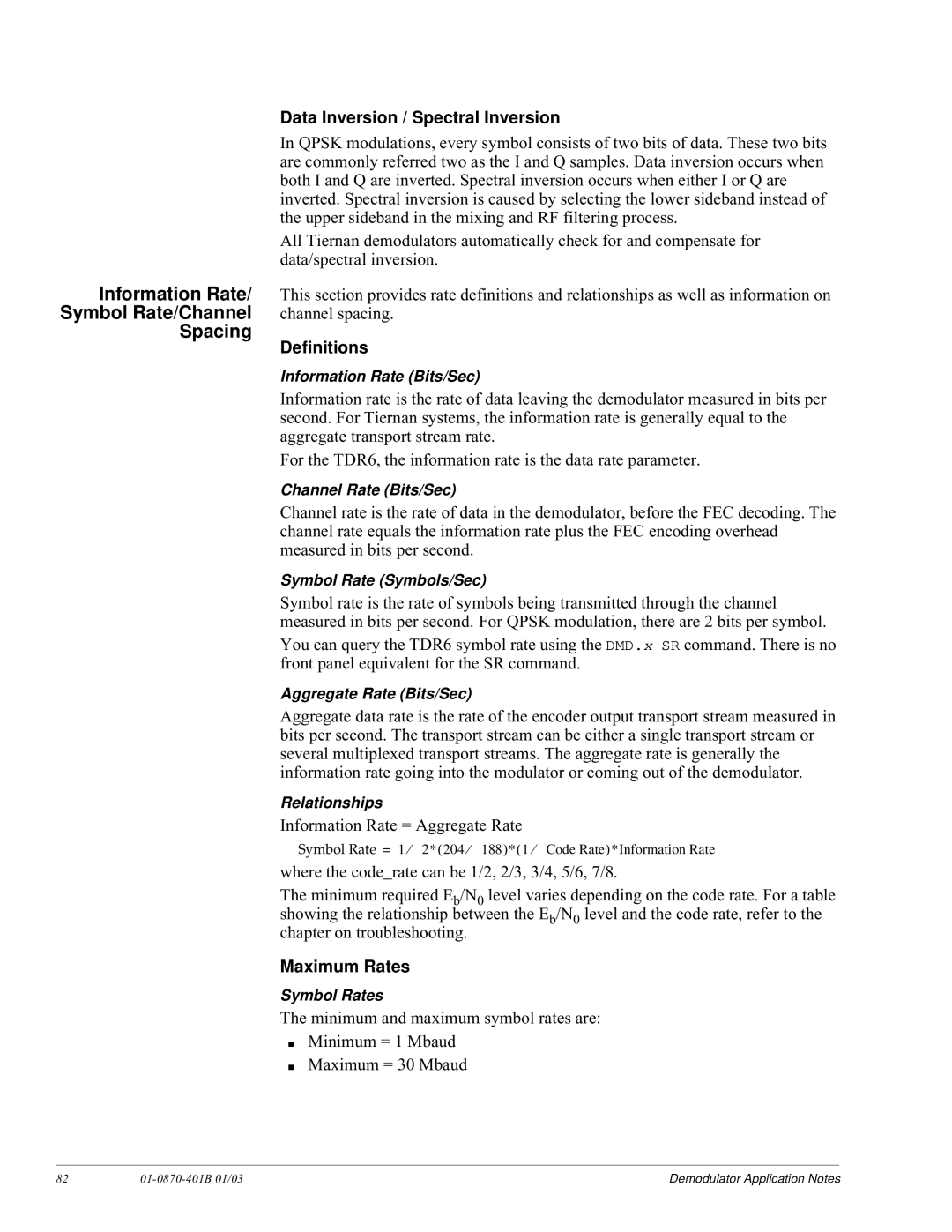| Data Inversion / Spectral Inversion |
| In QPSK modulations, every symbol consists of two bits of data. These two bits |
| are commonly referred two as the I and Q samples. Data inversion occurs when |
| both I and Q are inverted. Spectral inversion occurs when either I or Q are |
| inverted. Spectral inversion is caused by selecting the lower sideband instead of |
| the upper sideband in the mixing and RF filtering process. |
| All Tiernan demodulators automatically check for and compensate for |
| data/spectral inversion. |
Information Rate/ | This section provides rate definitions and relationships as well as information on |
Symbol Rate/Channel | channel spacing. |
Spacing | Definitions |
| |
| Information Rate (Bits/Sec) |
| Information rate is the rate of data leaving the demodulator measured in bits per |
| second. For Tiernan systems, the information rate is generally equal to the |
| aggregate transport stream rate. |
| For the TDR6, the information rate is the data rate parameter. |
| Channel Rate (Bits/Sec) |
| Channel rate is the rate of data in the demodulator, before the FEC decoding. The |
| channel rate equals the information rate plus the FEC encoding overhead |
| measured in bits per second. |
| Symbol Rate (Symbols/Sec) |
| Symbol rate is the rate of symbols being transmitted through the channel |
| measured in bits per second. For QPSK modulation, there are 2 bits per symbol. |
| You can query the TDR6 symbol rate using the DMD.x SR command. There is no |
| front panel equivalent for the SR command. |
| Aggregate Rate (Bits/Sec) |
| Aggregate data rate is the rate of the encoder output transport stream measured in |
| bits per second. The transport stream can be either a single transport stream or |
| several multiplexed transport streams. The aggregate rate is generally the |
| information rate going into the modulator or coming out of the demodulator. |
| Relationships |
| Information Rate = Aggregate Rate |
| Symbol Rate = 1 ⁄ 2*(204 ⁄ 188)*(1 ⁄ Code Rate)*Information Rate |
| where the code_rate can be 1/2, 2/3, 3/4, 5/6, 7/8. |
| The minimum required Eb/N0 level varies depending on the code rate. For a table |
| showing the relationship between the Eb/N0 level and the code rate, refer to the |
| chapter on troubleshooting. |
| Maximum Rates |
| Symbol Rates |
| The minimum and maximum symbol rates are: |
| ■ Minimum = 1 Mbaud |
| ■ Maximum = 30 Mbaud |
82 |
| Demodulator Application Notes |
